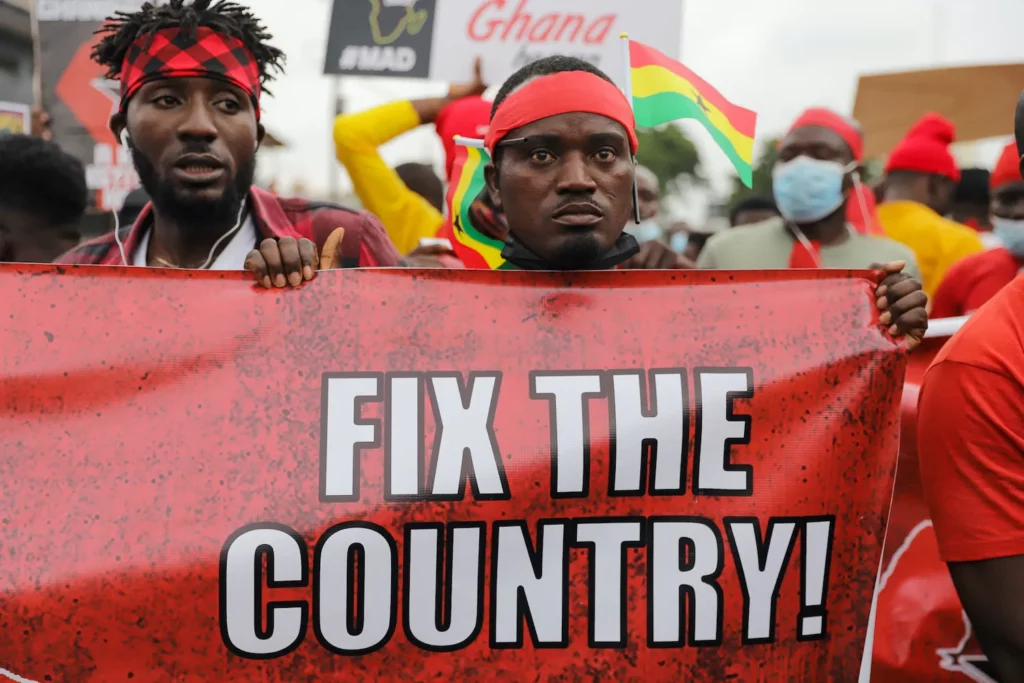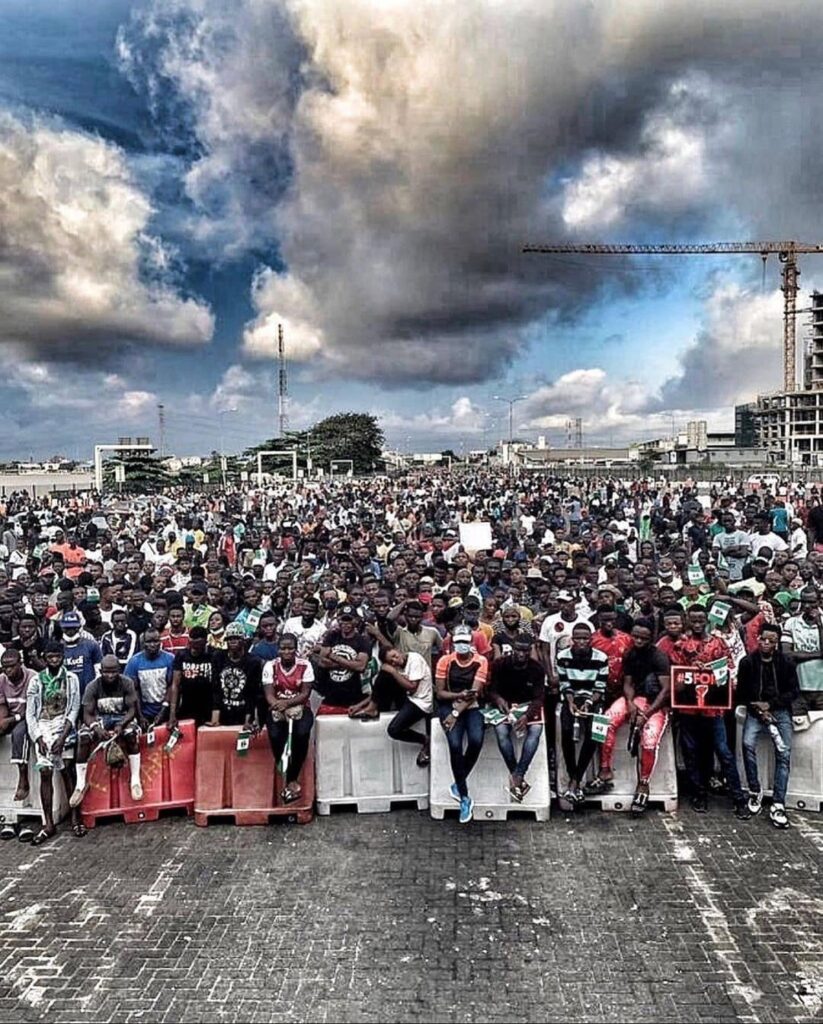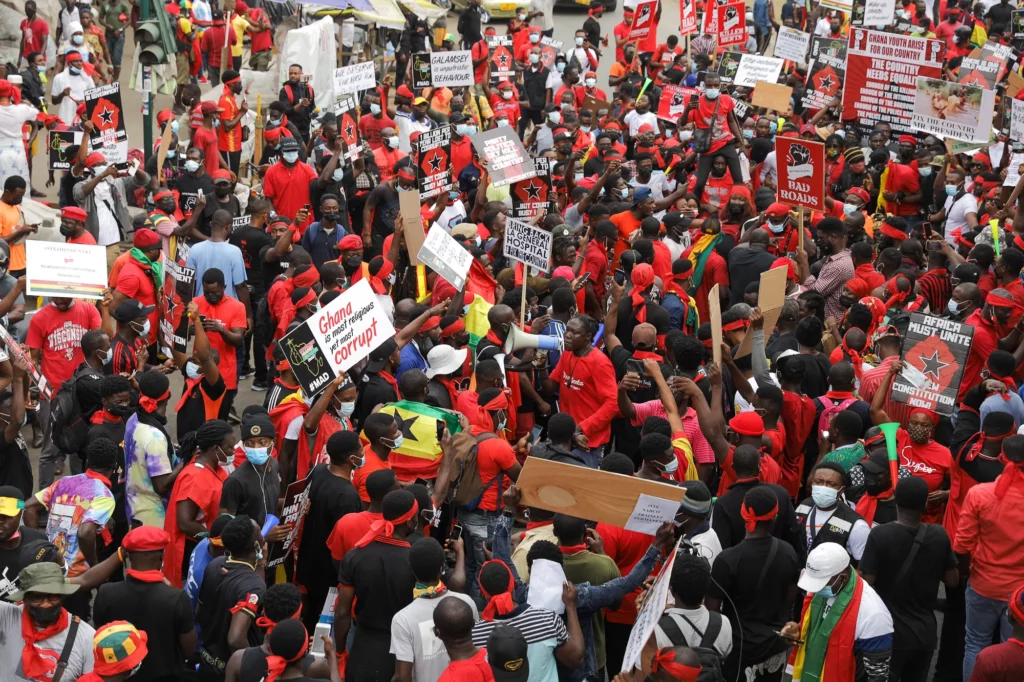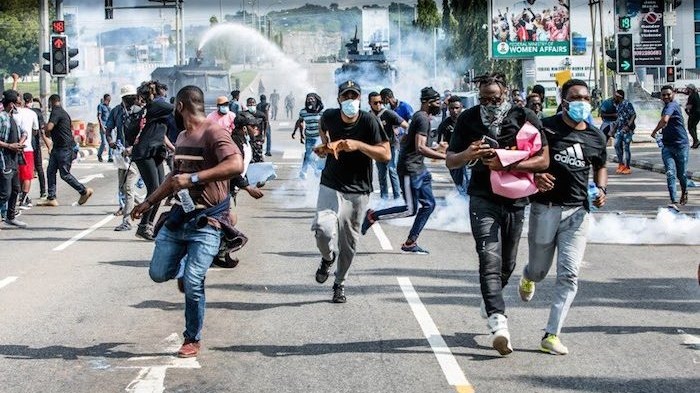BY EMMANUEL CHIDERA AMOKE

There’s been a peculiar trend among today’s African youth—a generation eager to change politics and the economy. It began with Nigeria, notably the October 2020 #EndSARS movement, then the #OBIdient movement during the 2023 General elections. More recently, we’ve witnessed several coups in African countries, and more are on the horizon.

The rising revolutionary movement of this current generation can be attributed to the accumulated anguish and hardship experienced by the average African. Africa, despite its rich resources, has faced one major problem, and that’s leadership. This leadership issue has contributed to the stagnation that, even previous generations before this present one, had found intolerable. Some countries have had over sixty years of independence, but little progress to show for it.
Taking a quick retrospection at previous generations, starting with the generation that saw the birth of independent Africa and the rise of nationalists. These nationalists were the young minds behind the revolution that led to the independence we enjoy today.
After independence came the post-independence era, marked by disillusionment. During this time, there were numerous military coups across Africa. Many countries experienced coups due to disappointment with the indigenous politicians who took over from colonial rulers.
While the period between post-independence and the contemporary era was marked by people who endured the aftermath of military rule. They often claim that the experience under military rule was worse than what we get from our democratic leaders. This generation would prefer to endure the current conditions rather than fight for change.

However, the hardship has become so unbearable, and as a result of this long-standing frustration, recent events in Ghana provide a stark example of the outburst of the present generation, and their cry for a change. Ghana saw a massive three-day protest.
Initially, the government responded harshly, arresting over 50 protestors, including journalists. To this, Bernard Mornah, a political activist, warned
“Let president Akuffo-Addo and the Ghana police service be told that anytime anyone resists peaceful change, violence change would occasion. We don’t want to engage in violence, but if they push us to the wall, we have no other option.”
The protest, which was tagged #occupyjubileehouse, lasted until Saturday (Sep. 23), despite downpour and sun. More young people joined the protests, each of the days, marching with placards demanding political change and economic reform. Protestors were bent on going to the seat of government, Golden Jubilee House, but the police barred their way.
Ghanaian celebrities, including Stonebwoy, John Dumelo and many others, lend their voices to the protest, urging the government to act.
However, some youths are concerned that the protest may achieve little without identifying suitable leaders to restore stability. Without this, the protest could inadvertently benefit the opposition party, which they see as still controlled by the same group of elites.

This mounting discontent among African youth highlights a critical demand for improved leadership and governance. Much like their predecessors, who fought for independence, this new generation refuses to accept the existing state of affairs. They are at the forefront of a movement for substantial change. The outcome of these collective actions will ultimately shape Africa’s future, offering the potential for a more promising and stable tomorrow as the momentum for transformation continues to grow.
Related posts
Wizkid Hints Buju And Pheelz’s Latest Song
Reviews
Follow Our Activities On Facebook
8 hours ago
8 hours ago
10 hours ago
12 hours ago
15 hours ago
SUBSCRIBE
[mc4wp_form id=”2012″]
Top Reads!
#BigBrotherNaija “Level Up” Week 6
Though last Sunday Sunday was meant to be a “no-eviction” day, it came as a shocker when fake housemate, Modella…
Dating in 2022; Situationships Are Not For The Fainthearted
Situationships are defined as that space between a defined relationship and something other than a friendship. It is a romantic…
20 Questions With Dinta Media’s Visual Storyteller, Chimeremogo Nwoke
Dinta Media is not really just a media production brand but we like to see ourselves as a hub for…
How Are Nigeria’s Small Businesses Coping?
The current rising rate of inflation and other burdens against the Nigerian economy speaks to the realities of the times.
Thrifting Is All The Rave Now, Here’s Why
By Amy Adindu The affordable clothing movement has gained global attention and acceptance as we’re all trying to look like…
#BigBrotherNaija “Level Up” Week 2
Week 2 of the highly watched Nigerian TV show kicked off with an early plot twist. On Sunday, Big Brother…
#BlueTunes: Burna Boy, Omah Lay Top Album Picks For July
July was a promising month for music lovers; from Lizzo’s album titled Special and Imagine Dragons’ Mercury, (Acts 1 &…
#BlueTunes Album Picks For June
Gbagada Express – Boj Bolaji Odojukan, popularly known as BOJ, was raised both in England and Nigeria. He shot to…
“A Creative’s Dream” with Jeff Chinonso
On the 26th of June 2022, Jeff Chinonso hosted his first solo art exhibition. The Augmented Reality exhibition themed “A…
Nigerian API-based company Thepeer raises $2.1 million
Tech infrastructure startup Thepeer has raised a $2.1 million seed round according to a report from TechCabal. Thepeer, a Nigerian…
Dika Ofoma, Ugochukwu Onuoha take on grief in Debut Film “The Way Things Happen”
The twenty-minute film focuses on the loss of a loved one, and how grief changes a person.
Nigerian Startups might just be Crippled by a Recently Leaked bill
Over the years there has been talks of amendment on the 2007 Act of the National Information & Technology Agency (NITDA).
Why We Love Kelechi Amadi Obi
The definition of talent is Kelechi Amadi’s iconic story. Imagine a person who studies law in school, gets called to Bar, and leaves it all for something different and unrelated…Painting!

















